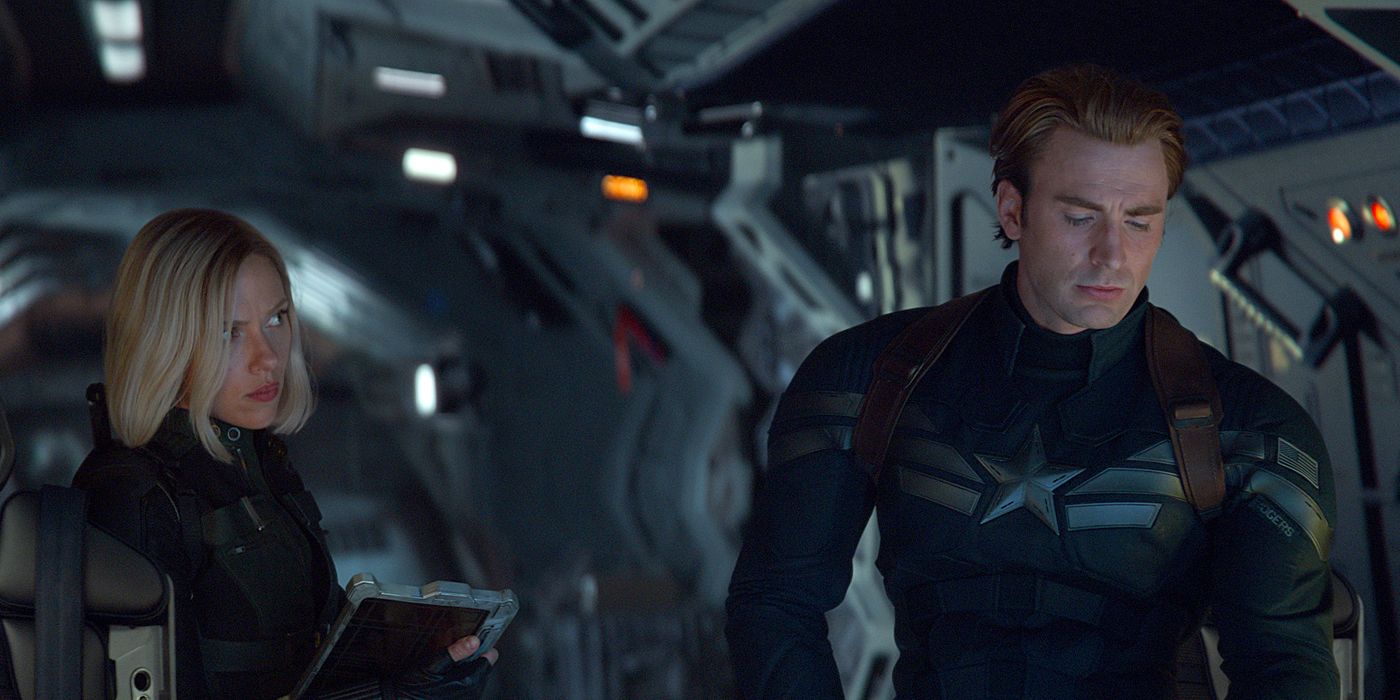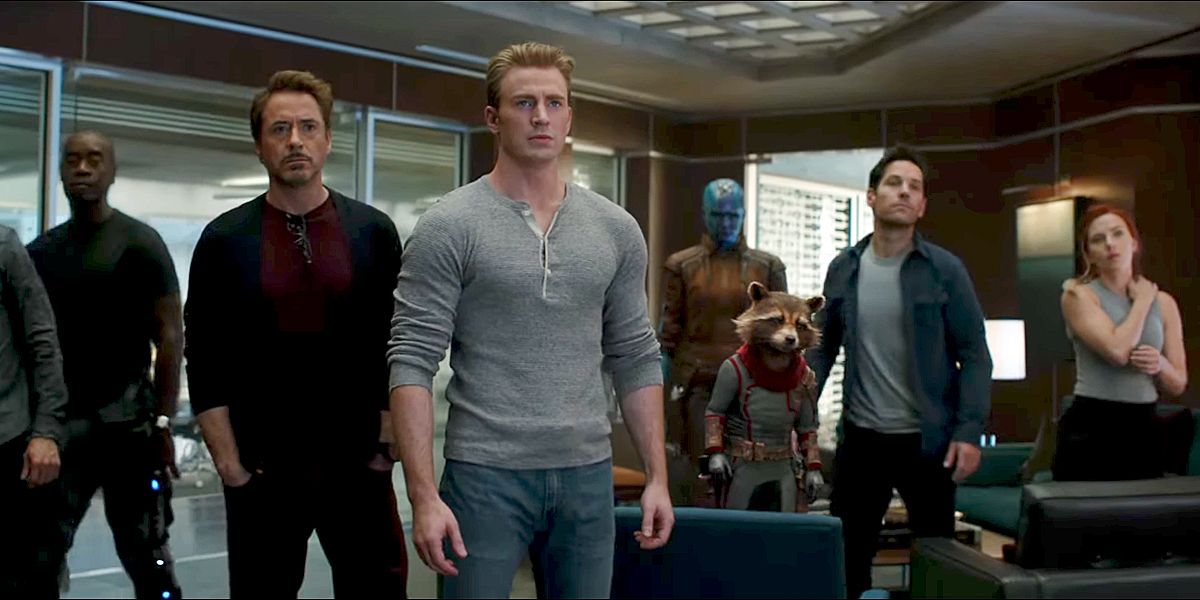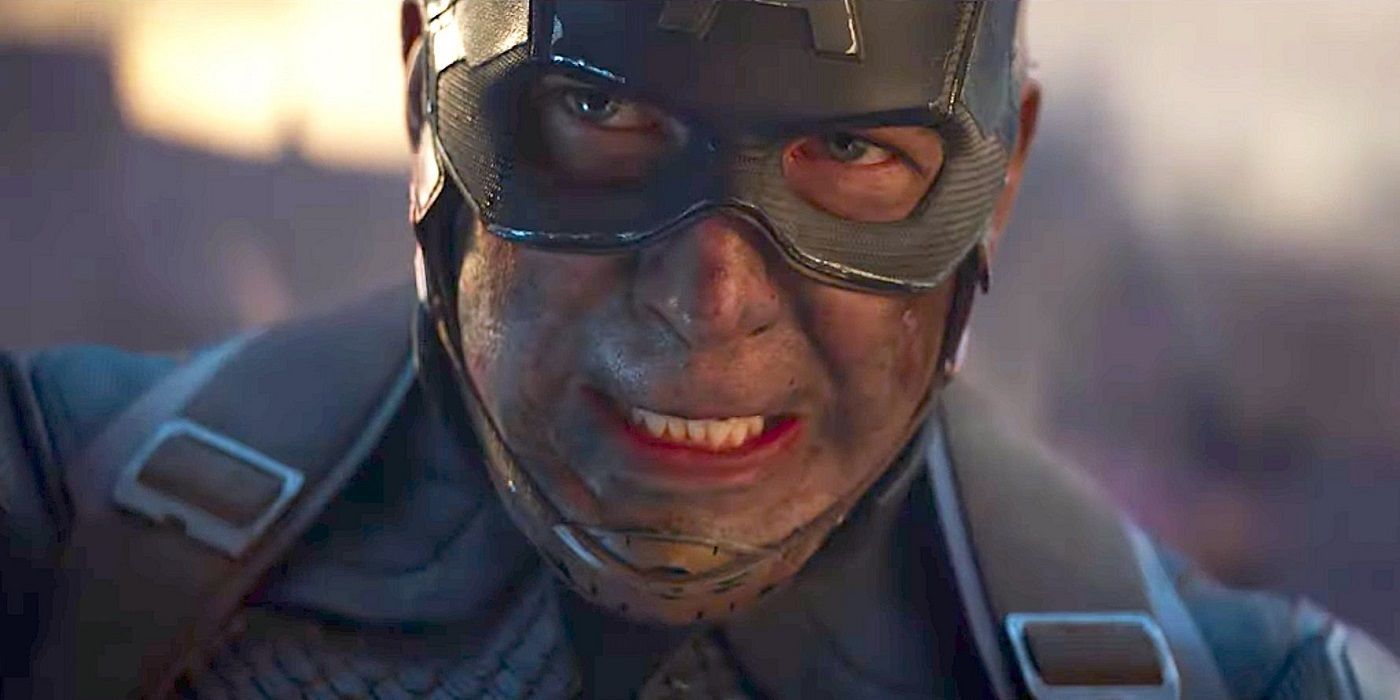WARNING: The following article contains spoilers for Avengers: Endgame, in theaters now.
With the smoke mostly cleared on Avengers: Endgame, the $2.7 billion blockbuster that effectively brings to a close the first decade of the Marvel Cinematic Universe, screenwriters Christopher Markus and Stephen McFeely appeared at the Emerson Colonial Theater in Boston to discuss their lengthy history with Marvel Studios.
Boston CBS anchor Lisa Hughes led the in-depth conversation with the duo behind three Captain America films, Thor: The Dark World, Marvel's Agent Carter, Infinity War and Endgame. Of course, much of the attention was focused on the latter.
The conversation began with the writers' collaborative process. Addressing how they come up with ideas, McFeely described himself as "mildly obsessive-compulsive, so much so that in an eagerness to hit the marks, I will often take the first decent idea. ... Chris is more reserved, and frustratingly has the best ideas." Markus joked that he's "the negative one," and that their brainstorming process is "OCD vs. ADD.”
The duo divides writing equally, with neither specializing in any particular type of scene. One strategy that Markus finds useful is rewriting dialogue into an "obvious version," in which any flourishes are removed so the point is made in the most direct way possible. An entire movie of obvious dialogue would be annoying, but some lines from the "obvious version" can be powerful when included in the script. Frigga's advice to Thor in Endgame -- "The measure of a person, of a hero, is how well they succeed at being who they are" -- is one example of an "obvious" line that worked well in the film.
It was made clear throughout the evening that the writers of Marvel Studios films aren't working off much of any sort of master plan. Studio President Kevin Feige may lay out "phases," and decide which characters will headline films, the stories themselves are left open to experimentation. That isn't the same sort of creative freedom a director may enjoy on an "auteur film" -- McFeely says Marvel is "no place for auteurs" -- but the collaboration can be liberating.
Markus and McFeely began writing Endgame after they completed Infinity War with no certainty about which of the original six Avengers would survive beyond an instinct that it would be right for Tony Stark to sacrifice in the end. McFeely noted that, at one point, Feige suggested they kill all six, pointing to the near-death incinerator scene in Toy Story 3 as potential inspiration.
The death of Black Widow has, of course, been subject of controversy, as the writers expected it would be. They actually considered having Clint Barton instead make the sacrifice in exchange for the Soul Stone, but a woman on the visual-effects team convincingly argued it had to be Black Widow, in order to complete her character arc.
One audience member pointed out that the death of the first female Avenger would likely have been less controversial had the first female Guardian of the Galaxy, Gamora, not had a similar death scene in Infinity War. McFeely described the two Soul Stone sacrifices as "sort of an inevitable result of choices we made." He didn't think he could make Death from the comics work in Infinity War, but "wanted to show Thanos loved someone." Sacrificing Gamora was Thanos' expression of that.
Hughes asked about Endgame's final scene, in which Steve Rogers travels back in time to live a full life with Peggy Carter. Markus and McFeely and directors Joe and Anthony Russo have provided conflicting answers about whether that occurred within the main Marvel Cinematic Universe or in an alternate timeline. Although favoring the main MCU theory, Markus attempted to ease the conflict by calling the issue "a question with many answers." As for why Steve wouldn't, for example, stop the Kennedy assassination if he were in the main MCU, Markus passed the buck: "We don't have to write that!"
Regarding the thematic purpose of the finale, McFeely said that, in contrast to Tony, Steve was already so self-sacrificing that his end had to be doing something for himself. "To complete himself," he said, "Tony must lose his life and Steve must get one."
The writers revealed that Marvel brought in physicists to provide advice on the mechanics of time travel. The duo was happy to hear one physicist flat-out state, "Back to the Future is bullshit!" In regard to what the destruction of the Infinity Stones means for the timeline, the writers are divided: McFeely said there "could be trouble going forward" in regard to stability, while Markus argued that "the atoms are still there," so technically the Stones' essence is still keeping time flowing normally.
Fans probed about other loose ends, such as Loki's escape with the Space Stone following the Battle of New York. McFeely said the scene "offered possibilities" to other writers. How did Steve return the Soul Stone to Red Skull? "There are times you might not like somebody but you have to give their stuff back," Markus reasoned. "It could make a great one-act play!" Why does Bucky seem to know what's about to happen when Steve travels through time? Markus actually had a concrete answer to that one: "Steve and Bucky had a talk the night before."
A few fans focused on the divisive relationship between Bruce Banner and Natasha Romanoff, and whether the decision to mostly avoid dealing with it in Infinity War and Endgame was a criticism of Age of Ultron. The writers acknowledged the relationship was controversial, but defended it as a valid creative decision by Joss Whedon, and something that added texture to future films. It turns out they actually wrote a few scenes for Infinity War that addressed the romance, but they were cut because they didn't propel the main story.
As for how they will possibly follow their long run at Marvel, the writers dropped that they're working on a secret, low-budget "ripped-from-the-headlines" project about journalists. They've found their decade working with Marvel extremely creatively fulfilling. Whereas other writers who alternate between big and small projects often describe the approach as "one for them" and "one for me," McFeely said the Marvel films are actually "both." Markus and McFeely wrote some of the biggest blockbusters in the world, but the massive commercial endeavors were nonetheless the films they wanted to write.
Directed by Joe and Anthony Russo, Avengers: Endgame stars Robert Downey Jr. as Iron Man, Chris Evans as Captain America, Mark Ruffalo as Bruce Banner, Chris Hemsworth as Thor, Scarlett Johansson as Black Widow, Jeremy Renner as Hawkeye, Brie Larson as Captain Marvel, Paul Rudd as Ant-Man, Don Cheadle as War Machine, Karen Gillan as Nebula, Danai Gurira as Okoye and Bradley Cooper as Rocket, with Gwyneth Paltrow Pepper Potts, Jon Favreau as Happy Hogan, Benedict Wong as Wong, Tessa Thompson as Valkyrie and Josh Brolin as Thanos. The film is in theaters now.



